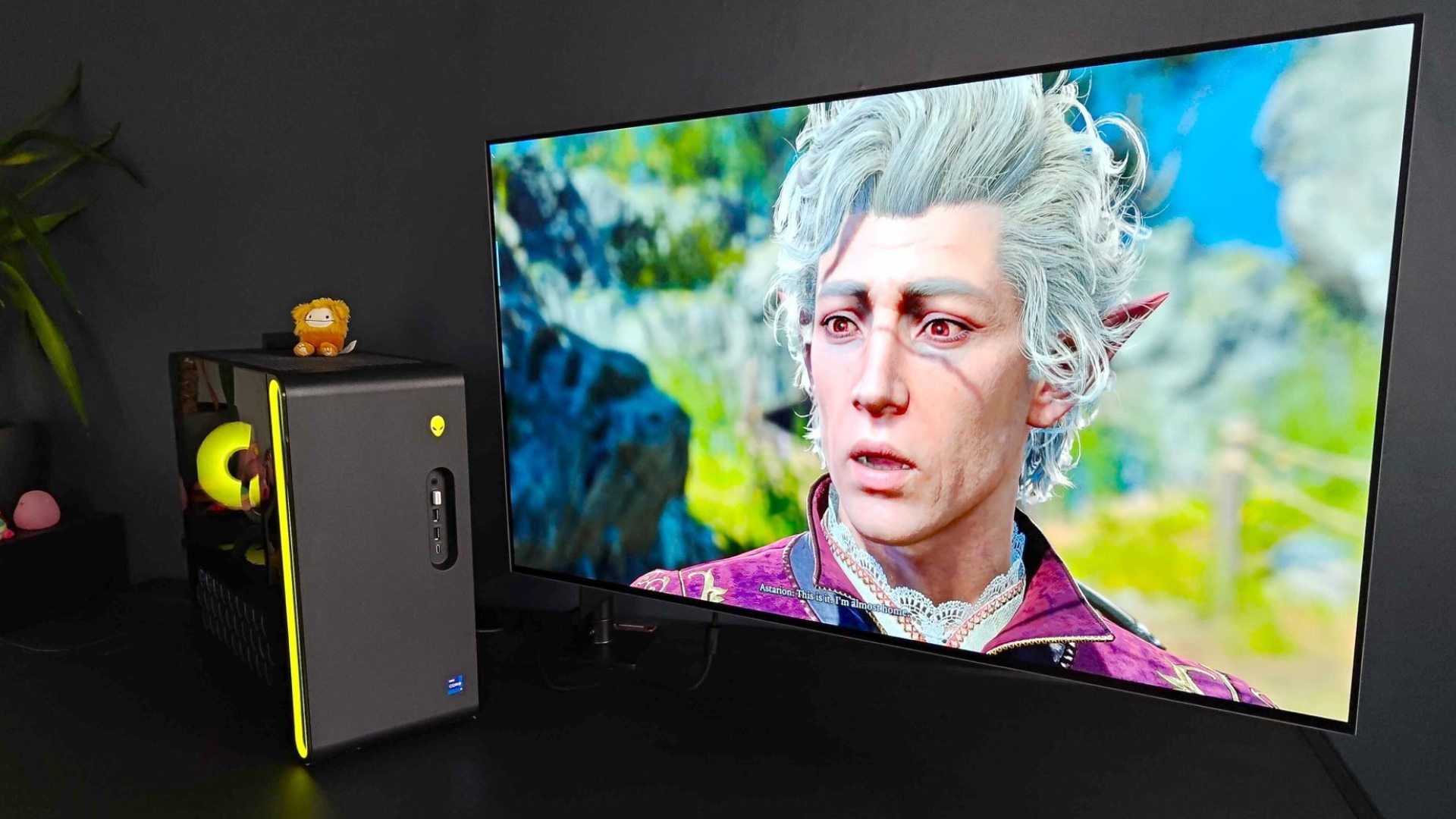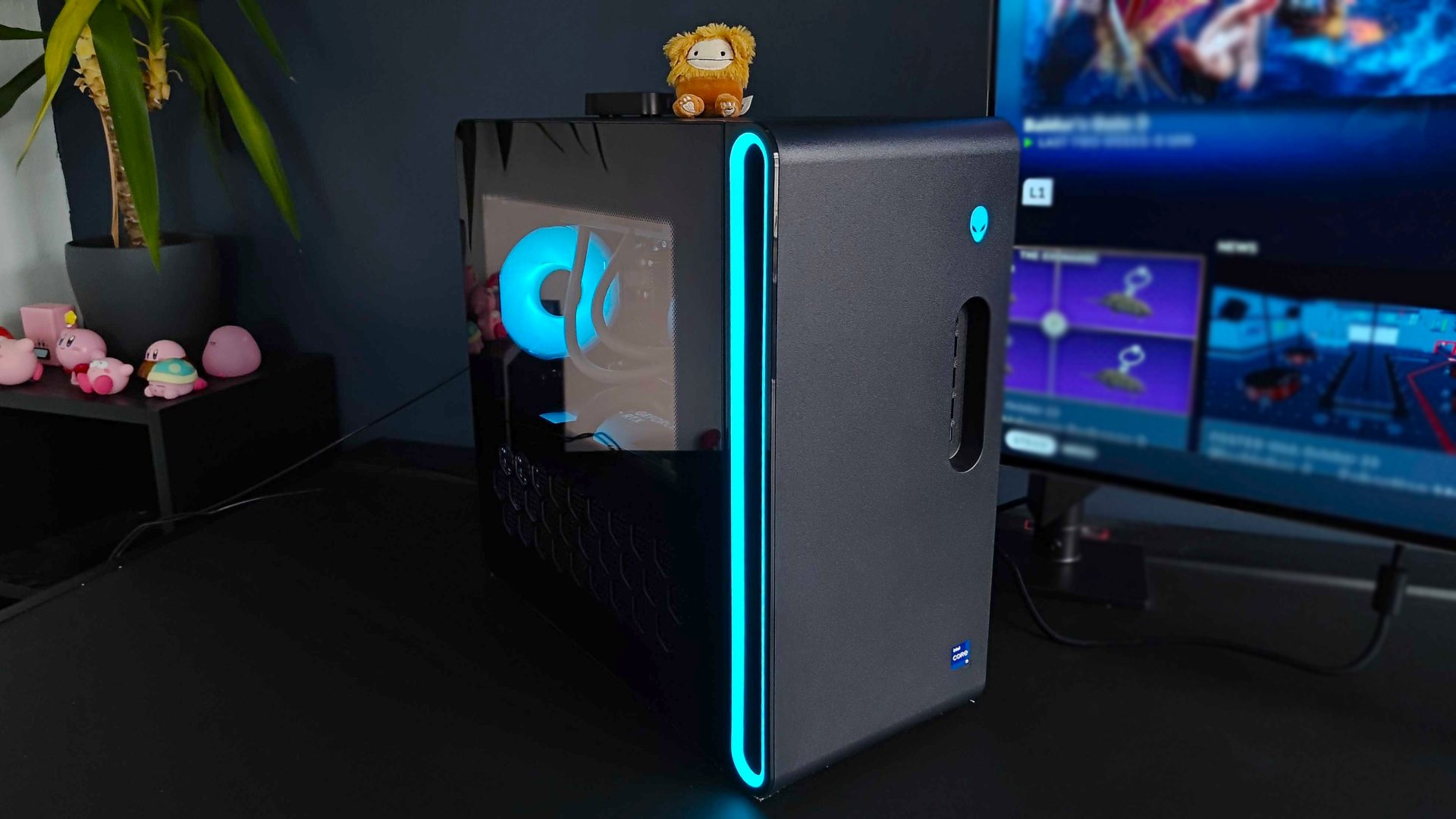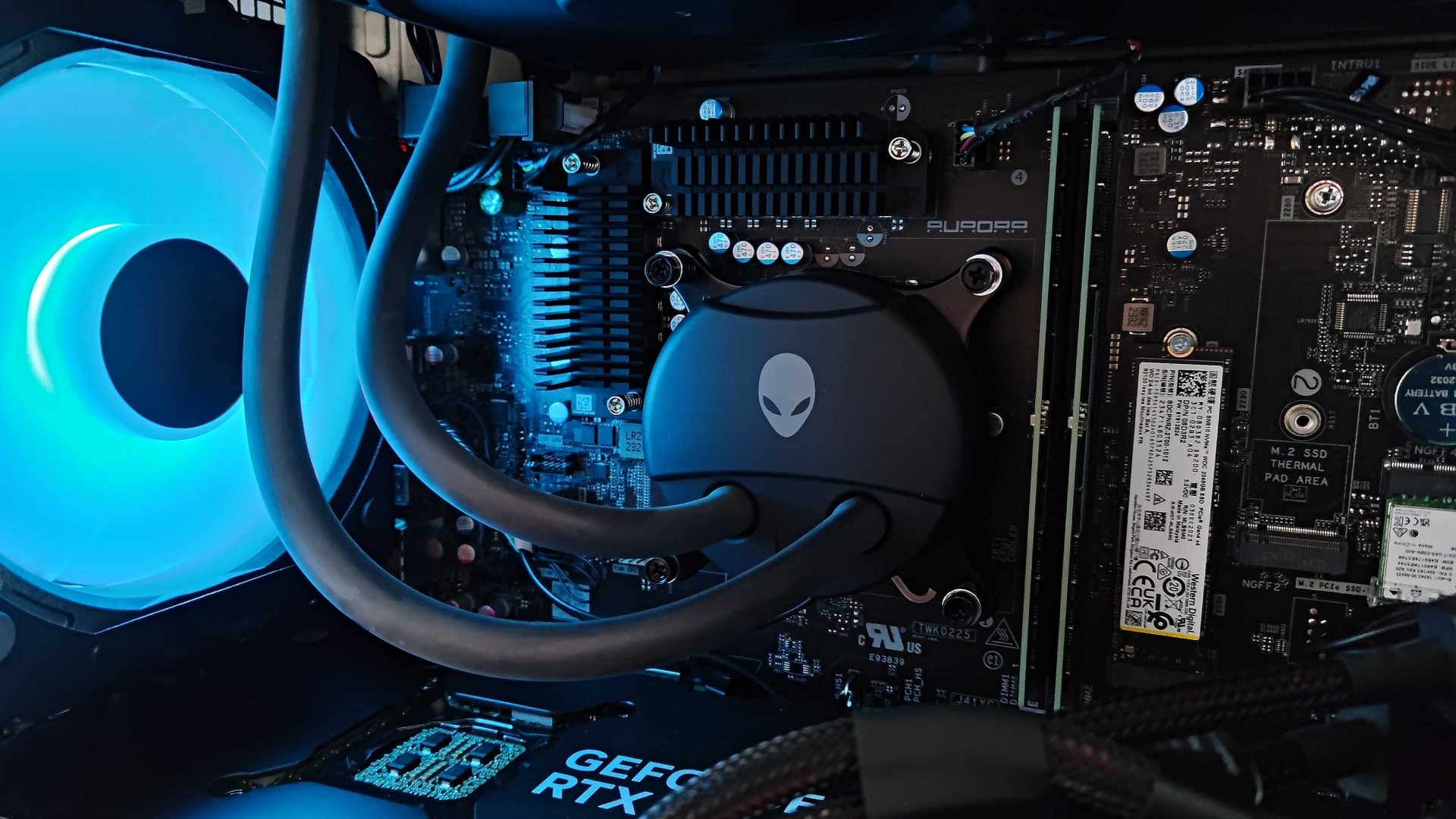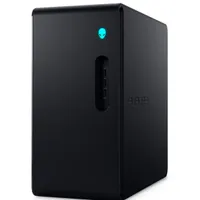If I were you, I'd grab this Alienware rig for a record low price and turn it into an RTX 5070 PC next year
Save, then upgrade.

Off the back of reviewing one of the latest Alienware gaming PCs, I found myself questioning whether picking up a new rig right now is wise. After all, there's a strong chance AMD and Nvidia will release next-gen graphics cards in the new year, and that'll no doubt come with a sense of frame rate FOMO. However, I've just stumbled across an excellent Aurora R16 discount that could be used to make a cheaper RTX 5070 system when the time comes.
Over at Dell, the Alienware Aurora R16 is down to $1,499.99 from $1,899.99, and the specific build boasts an RTX 4070 Super, Intel Core i7 14700F CPU, 16GB DDR5 RAM, and a 1TB SSD. The $400 discount brings the rig to a new record low price, shaving an additional $100 off compared to deals that made the rounds last week. Not too shabby considering this is one of the best Alienware gaming PCs around that boasts quieter cooling and less garishly intergalactic design.
Placing my upgrade ideas aside for just a moment, this 4070 Super Aurora R16 actually comes close to the price of many ordinary builds at Amazon. One of the closest I could find is the MSI Aegis R, which happens to currently down to $1,399 (was $1,649), but while specs are very similar, there are boons tied to buying the Alienware rig that make it worth looking at instead.
Alienware Aurora R16 | $1,899.99 $1,499.99 at Dell
Save $400 - This record low Aurora R16 deal brings the system down to the same price as similar non-Alienware builds, making it well worth a look for players seeking a Dell system. It was actually $100 just last week, and it makes for an excellent base for upgrades ahead of the RTX 50-series launch next year.
Specs: Intel Core i7 14700F, RTX 4070 Super, 16GB DDR5 RAM (2 x 8GB), 1TB M.2 SSD
Buy it if:
✅ You want an Alienware specifically
✅ You're looking for mid-range performance
✅ You'd like to swap out the GPU next year
Don't buy it if:
❌ You'd rather just wait for next-gen PCs
❌ You prefer the look of the older R15
Price Check: Amazon $2,486 | Best Buy (out of stock)
Should you buy the Alienware Aurora R16?

I've spent a lot of time with the Alienware Aurora R16 lately, and the RTX 4090 version really tears up the 4K performance track. Of course, I'm also aware that most players aren't going to be gunning for a system with the best graphics card and high-spec CPU, so I've been thinking a lot about configurations. So, in order to come up with a nice middle ground solution, I decided to explore the idea of upgrading the discounted rig above with a shiny new card next year, and I genuinely think it'll be the way to go.
Don't get me wrong, the Nvidia GeForce RTX 4070 Super will provide more than enough oomph for mid-range players. It can even pull off some neat 4K tricks thanks to DLSS AI upscaling, so long as you're not a stickler for native performance. But, the value of such components will soon be thrown into question when the RTX 5090 and its siblings charges into battle, and the idea of turning the R16 into an RTX 50-series machine before the R17 gets the chance to show up excites me a little.
To avoid any hypocrite accusations, I want to touch on the fact that in terms of general upgradability, the Aurora R16 isn't the best. Quirks like the fact it only has two DIMM slots for RAM, bespoke motherboard, and proprietary PSU can limit just how far you can easily bump specs. The GPU, however, is more of a straight swap-out, and since the size is already designed to accommodate an Nvidia GeForce RTX 4090, lower tier next gen GPUs should slot in without a hitch.

I'm aware that I'm focussed in on next-gen upgrades when, in fact, you could actually simply use the arrival of new GPUs to make the RTX 4090 jump next year. I can't guarantee the next gen flagship will ever get much cheaper, as the RTX 3090 before it sort of just upped and left rather than drop in price. But, you'll still have various options when it comes to choosing a "better" card once the next generation kicks off, and if it were me, I'd carve out an upgrade path to the theoretical RTX 5070.
Could you go the full ten yards and invest in an RTX 5090 for the Aurora R16? I believe so since you'll have a 1,000W PSU and a capable i7 CPU to hand. The only thing that makes me feel silly recommending this tactic instead is that it'll probably cost more than the entire Alienware build. But hey, you might still end up paying less for a 2025 machine with the flagship graphics card inside.
The TLDR here is this - yes, there are similar gaming PC builds out there that could become RTX 50-series systems next year. However, since many of you will be gunning for a new Alienware specifically, I'd honestly pick up the Aurora R16 at a discount now then swap the GPU once next-gen options arrive next year.
Looking for more savings? Check out Black Friday graphics card deals and Black Friday gaming PC deals for rig upgrades. Alternatively, swing by Black Friday Steam Deck deals if you'd rather head outside with your PC library.
Weekly digests, tales from the communities you love, and more

Phil is currently the Hardware Editor at GamesRadar+ who specialises in retro gaming, the best gaming handhelds like the Steam Deck, and more modern components like graphics cards. Having spent years offering up classic console advice and over a decade as a gaming journalist for big names like TechRadar, The Daily Star, the BBC, Den of Geek, and many more, Phil now dedicates their days to covering the latest news and offering up invaluable setup advice.



